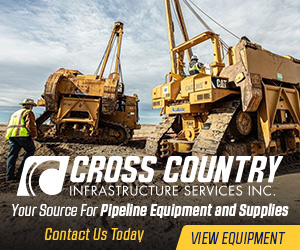The Cybersecurity and Infrastructure Security Agency (CISA) released the Version 2.0 (attached) of its Essential Critical Infrastructure Workforce advisory liston March 28 to help state/local entities protect their communities while ensuring continuity of functions critical to public health and safety as well as economic and national security. APCA submitted comments on a previous version of this guidance last week. CISA noted that the list should not be considered a federal directive or standard but is intended to be the exclusive list of critical infrastructure sectors, workers, and functions. It “identifies workers involved in the construction and services that are typically essential to the viability of maintaining and repairing critical infrastructure, including preforming the construction who support crucial supply chains and enable functions for critical infrastructure.”
More to come, but here’s where are we are now. “Version 2.0” of this report is attached. These bullets on essential workers are pulled directly from Version 2.0.
Natural Gas
- Workers who support onshore and offshore drilling operations, natural gas and natural gas liquid production, processing, extraction, storage and transportation; platform and drilling construction and maintenance; transportation (including helicopter operations); maritime transportation, supply, and dredging operations; maritime navigation; well intervention, monitoring, automation and control; waste disposal, and maintenance, construction, and operations;
- Transmission and distribution pipeline workers, including compressor stations and any other required, operations maintenance, construction, and support for natural gas, natural gas liquid, propane, and other liquid fuels;
- Natural gas, propane, natural gas liquids, and other liquid fuel processing plants, including construction, maintenance, and support operations;
- Natural gas processing plants workers, and those that deal with natural gas liquids;
- Supporting new and existing construction projects, including, but not limited to, pipeline construction;
- Ethanol and biofuel production, refining, and distribution; and
- Workers in fuel sectors (including, but not limited to nuclear, coal, and gas types and liquid fuels) supporting the mining, manufacturing, logistics, transportation, permitting, operation/maintenance, and monitoring of support for resources.
Petroleum industry:
- Supporting new and existing construction projects, including, but not limited to, pipeline construction;
- Workers for onshore and offshore petroleum drilling operations; platform and drilling construction and maintenance; transportation (including helicopter operations), maritime transportation, supply, and dredging operations; maritime navigation; well stimulation, intervention, monitoring, automation and control, extraction, production; processing; waste disposal, and maintenance, construction, and operations; and
- Workers for crude oil, petroleum and petroleum product storage and transportation, including pipeline, marine transport, terminals, rail transport, storage facilities and racks and road transport for use as end-use fuels such as gasoline, diesel fuel, jet fuel, and heating fuels or feedstocks for chemical manufacturing.
Transportation and Logistics
- Employees supporting or enabling transportation functions, including truck drivers, bus drivers, dispatchers, maintenance and repair technicians, warehouse workers, and towing/recovery services;
- Workers including truck drivers, railroad employees and contractors, maintenance crew, and cleaners supporting transportation of chemicals, hazardous, medical, and waste materials to support critical infrastructure, capabilities, functions, and services, including specialized carriers, crane and rigging industry workers;
- Automotive repair, maintenance, and transportation equipment manufacturing and distribution facilities;
- Manufacturers and distributors of packaging materials, pallets, crates, containers, and other supplies needed to support manufacturing, packaging staging and distribution operations; and
- Workers critical to rental and leasing of vehicles and equipment that facilitate continuity of operations for essential workforces and other essential travel.
Critical Manufacturing
- Workers necessary for the manufacturing of metals (including steel and aluminum), industrial minerals, semiconductors, materials and products needed for medical supply chains, and for supply chains associated with transportation, energy, communications, information technology, food and agriculture, chemical manufacturing, nuclear facilities, wood products, commodities used as fuel for power generation facilities, the operation of dams, water and wastewater treatment, processing and reprocessing of solid waste, emergency services, and the defense industrial base. Additionally, workers needed to maintain the continuity of these manufacturing functions and associated supply chains, and workers necessary to maintain a manufacturing operation in warm standby;
- Workers supporting the energy sector, regardless of the energy source (including but not limited to nuclear, fossil, hydroelectric, or renewable), segment of the system, or infrastructure the worker is involved in, or who are needed to monitor, operate, engineer, and maintain the reliability, safety, environmental health, and physical and cyber security of the energy system;
- Providing services related to energy sector fuels (including, but not limited, petroleum (crude oil), natural gas, propane, natural gas liquids, other liquid fuels, nuclear, and coal), supporting the mining, processing, manufacturing, construction, logistics, transportation, permitting, operation/maintenance, security, waste disposal and storage, and monitoring of support for resources; and
- Manufacturing and distribution of equipment, supplies, and parts necessary to maintain production, maintenance, restoration, and service at energy sector facilities (across all energy sector segments).






